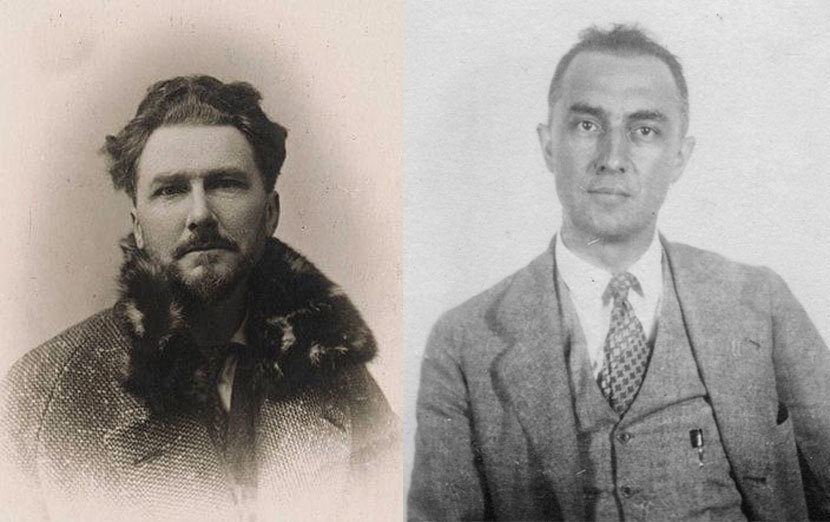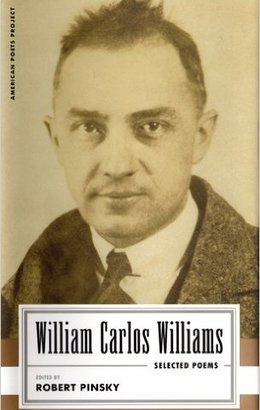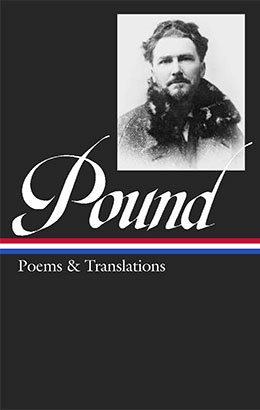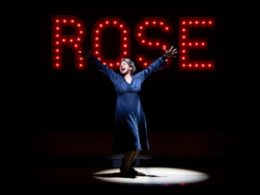Guest blog post by Herbert Leibowitz, founder and editor of Parnassus: Poetry in Review, and author of “Something Urgent I Have to Say to You”: The Life and Works of William Carlos Williams (Farrar, Straus and Giroux, 2011).

Few literary friendships can compare to the strange, contentious alliance between Ezra Pound and William Carlos Williams, which spanned sixty years, ending with Williams’s death in 1963. They met in Philadelphia, where Williams was starting his first term at the University of Pennsylvania School of Medicine and Pound, two years his junior, was an undergraduate studying Romance Languages at the University. For Williams, a sheltered, naïve, young man from Rutherford, New Jersey, with inchoate aspirations to make his mark on the world as doctor and poet, encountering Pound was like being struck by lightning.
The two could not have been more different. Where Pound was voluble and cocksure in his opinions, Williams was cautious and diffident. Already playing the role of flamboyant literary agent provocateur, Pound aimed to drive the poetasters from the Temple of Art and seize the throne of modernist poetry czar for himself. Williams, with tastes formed by after-dinner readings at home from Shakespeare and Palgrave’s Victorian anthology, still had an adolescent’s romantic crush on Keats.
Williams enjoyed Pound’s sophisticated shoptalk and spellbinding riffs on just about any topic, An apt pupil and rapt listener, he absorbed Pound’s obiter dicta and stored them away until he had time to test their validity. Early in their friendship, a paradigm was established: Williams impressed by Pound’s dazzling erudition and precocious mastery of poetic forms, Pound enjoying the amiable and intelligent openness Williams so willingly provided. They shared common interests: fencing, theater, pretty co-eds, and dreams of future success. And if Williams was at times a reluctant disciple, that was a piquant challenge for the two to spar, as they did fencing with épées.
Ever self-centered, Pound never noticed Williams sizing him up. In a letter to his mother, on March 30, 1904, Williams drew a shrewd psychological profile of his new friend:
Pound is a fine fellow; he is the essence of optimism and has a cast-iron faith that is something to admire. If he ever does get blue nobody knows it, so he is just the man for me. But not one person in a thousand likes him, and a great many people detest him and why? Because he is so darned full of conceits and affectation. He is really a brilliant talker and thinker but delights in making himself just exactly what he is not: a laughing boor.
In his 1951 Autobiography, Williams recalls a school performance of Euripides’s Iphigenia in Aulis in which Pound played a woman of the chorus: dressed in an outlandish, ill-fitting wig and gesticulating wildly, he “heaved his massive breasts in ecstasies of extreme emotion,” as though mentally unbalanced. Pound seemed to drill home the dangers of living or dying for art; Williams refused “to be bedbug food for it,” and instead chose to earn his living practicing medicine.
Once Pound became an expatriate, restlessly moving from London to Paris to Rapallo, the two poets saw each other only for short periods and communicated mostly by mail; their exchanges could be volatile, hilarious, pontifical, or insulting—all in one letter. When Williams visited Pound in London in 1910, Ezra tried to cure Bill’s literary provinciality by introducing him to Yeats and giving him a tour of cosmopolitan London’s cultural treasures, but Pound’s garrulous salesman’s pitch left Williams feeling self-conscious and defensive; he couldn’t wait to escape the stifling ambience of hothouse aestheticism.
Pound had a famously generous side: he arranged for the publication of The Tempers (1913), published Williams’s “Postlude” in the Imagist Anthology (1914), and pushed Harriet Monroe to accept some of Williams’s poems in Poetry. Williams was grateful for his pal’s assistance, but it came at a high price: in letter after letter, Pound bombarded him with advice, excoriated him for his ignorance of the classic poets, and ridiculed him for embarking on a fool’s quest for the holy grail of an American poetic idiom. Williams tolerated these hectoring outbursts, for the most part, with stoical calm. He respected Pound’s technical skills and found his advice in that area useful. When Pound’s belligerence and condescension wore him down, however, he would erupt in molten anger. The fact is, Williams freely admitted, he could not stand Pound’s company for more than a few hours at a time.
Their friendship almost crumbled when Pound edited and championed T. S. Eliot’s The Waste Land (1922), which instantly became the modernist long poem. It is no exaggeration to say that Williams felt betrayed by Pound, the pain more stinging because he had lost his oedipal rivalry to a poet he loathed. Williams reacted in two ways: he turned Eliot into a bugbear whose glory he envied and whose supercilious manner he despised; and steeling his will, he sat down to write a long poem, Spring and All (1923), he hoped would eclipse or at least compete with Eliot’s (he did not let Pound read or vet the manuscript before publication). The desired vindication failed to occur. The Waste Land was talked about everywhere, whereas Spring and All, Williams’s breakthrough poem, went virtually unread. (Half of its 350 copies were confiscated by the U. S. Post Office, probably because it was printed in France, and assumed to be salacious.) Because of their artistic disagreements, the friendship cooled, only to flare up ten years later.
Pound’s greatest gift to Williams was urging James Laughlin, the tyro founder and publisher of New Directions, to sign the Bard of Rutherford to a contract. Until 1936, Williams’s books had mostly appeared in small editions and quickly vanished. As New Directions prospered under Laughlin’s leadership, Williams’s readership began to increase. Having studied at the “Ezuversity,” Laughlin knew by heart the Pound catechism, bombast, foibles, and encyclopedic knowledge of poetry. But even he was unprepared for what occurred in the 1930s: the horrific spectacle of Pound’s mind demonstrably unhinged: the shrill propaganda broadcasts for Mussolini and the applause for Hitler and Franco’s massacres of innocents were undeniable symptoms of a descent into madness.
Williams, too, was appalled and disgusted that his old friend had become a prisoner of Fascism. The character flaws and affectations he had early intuited in Pound had metastasized into delusions of grandeur and apologies for moral and political evils. Williams flayed Pound for his cruel, unforgivable blindness to human suffering on a massive scale. Pound’s toxic fulminations could not be explained away as mere rhetorical overkill. Realizing Pound was beyond the reach of logical argument, Williams was on the verge of terminating their long friendship.
Undoubtedly, Williams’s gratitude for Pound’s tutelage and benefactions held him back from an irrevocable rupture, as did his abiding respect for Pound as a titan of poetry. After Pound was arrested for treason in 1945, he was transferred to Washington, D.C. for arraignment and incarcerated in St. Elizabeths Hospital for the Criminally Insane. He presided there for the next twelve years like a deposed monarch in exile, surrounded by his books, adding cantos to his long poem, and exchanging anti-Semitic slurs with the weird, bigoted people who visited him.
Williams corresponded infrequently with Pound in those years and, when he did drag himself to Washington for a long-postponed meeting, it was an awkward reunion. Williams could not help noticing that the old centaur had scarcely changed: the high, whinnying laugh and the spate of allusions, epigrams, and judgments ranging from the brilliant to the crackpot were as familiar as Pound’s epistolary voices.
Always eager to ground himself in plain talk with common folks, Williams described Pound to the black taxi driver who returned him to the city and asked his opinion of his friend’s behavior. “He’s not crazy, he just talks too much.” Although a glib response that lets Pound off the hook, it echoed Williams’s own inner debate: is Pound to be condemned or do his magisterial contributions to poetry mitigate his guilt? This debate became public when Pound’s Pisan Cantos won the Library of Congress’s first Bollingen Prize in 1949—and Williams bravely and vociferously argued the latter stance.
In the last phase of their friendship, each poet lapsed into silence. For several years Pound rarely spoke, as if belatedly atoning for the diabolical words and rants he had spewn; and Williams, reeling from several strokes, could communicate only in broken phrases or in anguished stammering. When Williams died in 1963, Pound wrote to Williams’s wife Floss in uncharacteristic humility: “He put up a great fight for you & he bore with me for 60 years. I shall never have another poet friend like him.”
Death had finally sundered their friendship—and how sad that Williams could not hear those plain words of tribute.





